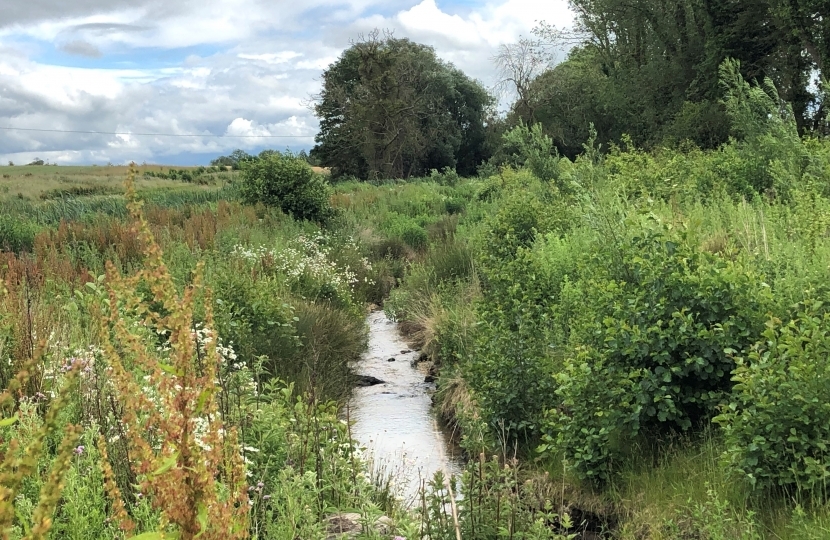
James Wild MP welcomes new commitments to tackle sewage spills into rivers
A joint industry-government group established last year to tackle river pollution has today agreed a new objective to prevent damage from storm overflows.
The Storm Overflows Taskforce – made up of Defra, the Environment Agency, Ofwat, Consumer Council for Water, Blueprint for Water and Water UK – has agreed to set a long term goal to eliminate harm from storm overflows.
Following recommendations from the Taskforce, water companies will also increase transparency around when and how storm overflows are used. Storm overflows were designed to be used during extreme weather to prevent sewers becoming overloaded with a combination of sewage and rainwater, releasing diluted wastewater into rivers rather than letting it back up into people’s homes. However climate change has led to increased rainfall and water infrastructure has not kept pace with development growth over decades.
Under the commitments:
- Water companies have agreed to make real-time data on sewage discharges available at bathing sites all year round, meaning surfers, swimmers and other water users can check the latest information – especially after heavy rainfall.
- Water companies will also accelerate work to install monitoring devices to create a complete picture of their activity by 2023.
- Water companies will publish annual monitoring data on their websites about their use of storm overflows so that progress in reducing their use can be tracked.
These commitments come as the Government has confirmed that it is backing the objectives of the Sewage (Inland Waters) Bill to clean up water quality in our rivers. James was one of 106 MPs who supported the Private Member’s Bill, introduced to Parliament by Philip Dunne MP. The Bill was due to be debated today but that has been postponed due to Covid-19 restrictions. The Government has committed to continuing to work with Mr Dunne on the best way to make progress in reducing the harm caused by sewage spilling into rivers.
James Wild MP for North West Norfolk said:
“I have been campaigning to reduce the extent of sewage being released into rivers which has happened hundreds of times in North West Norfolk. These new measures will help to reverse the use of overflows so it only happens in exceptional circumstances. By encouraging water companies to accelerate their efforts, these measures will play an important role in protecting these valuable ecosystem for aquatic species and so the public can enjoy our rivers. Greater transparency is important alongside the Environment Agency taking enforcement action where the rules are broken.”
In Parliament, James challenged the regulator and water companies as part of the Public Accounts Committee inquiry into water management. In the House of Commons he highlighted that in 2019, water companies discharged sewage into precious chalk streams and rivers across the country 200,000 times. He pressed for the Environment Agency to take more enforcement action so discharges only happen in exceptional circumstances.
Since 2010, 884 storm overflows have been improved to reduce their environmental impact and frequency of operation, with a further 798 improvements planned for the period 2020 – 2025.
The Storm Overflows Taskforce was set up in August 2020 to bring together water companies, regulators and environmental NGOs to accelerate progress in this area, building on work already underway to improve our rivers and waterways.
The Environment Bill will place a statutory requirement on water companies to produce drainage and sewerage management plans to help deliver more of the actions needed to address the risks sewerage assets may pose to the environment.
It is the responsibility of water companies to ensure serious water pollution incidents do not occur, and they have committed to a significant programme of improvements to the monitoring and management of storm overflows over the next five years at a cost of around £1.1 billion.
As a result of the work of the Taskforce, water companies have identified opportunities to increase the number of overflows they will improve over the next five years.
NOTES TO EDITORS
Data on releases of sewage in North West Norfolk can be found here https://experience.arcgis.com/experience/e834e261b53740eba2fe6736e37bbc7b/

